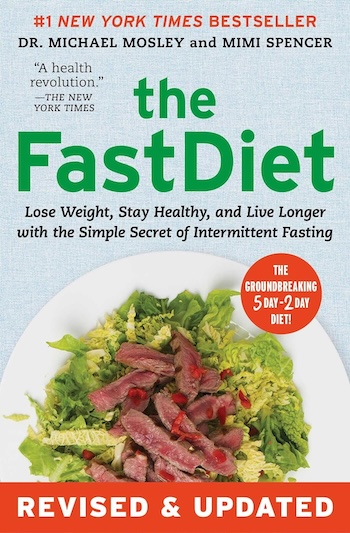By Essie Johnson
The first time I read about Intermittent Fasting (IF) I thought no, positively, absolutely not, I have no desire to fast and I won’t do it. Like a week later, I was sold on it, and once you hear the benefits and find out how easy and flexible it is—you might be, too.
What is IF?
“Intermittent” means sporadic, or ceasing and beginning again. Intermittent fasting is just that: you choose a window of time to fast, and a window to cease fasting and eat. Though it can be occasional, most people who know and love IF adopt it as a lifestyle.
Science-Backed Benefits of IF
Eating too much and too frequently prevents the biological conditions needed to perform vital functions including cognitive, metabolic, detoxifying, healing, repair, and others.
Conversely, fasting to the point of starvation, as in anorexia nervosa, depletes our cells, speeds up the process of aging, eats muscles (causing the dreaded “skinny fat”), and eventually kills.
But studies show that healthy, short-term, intermittent fasting triggers protective measures over brain cells, and results in other tremendous benefits to our health. When done correctly, intermittent fasting:
1. Enhances fat burning
2. Increases natural production of Human Growth Hormone, famous for its anti-aging, lean muscle building, and fat burning powers
3. Increases insulin sensitivity and helps prevent Diabetes Type II

Lose Weight, Stay Healthy, and Live Longer with the Simple Secret of Intermittent Fasting
4. Promotes brain health
5. Improves memory, focus, and concentration
6. Increases longevity
7. May protect from Dementia and Alzheimer’s Disease
8. Normalizes ghrelin (the “hunger hormone”)
9. Curbs sugar cravings
10. Helps reduce inflammation throughout the body
11. Promotes healthy cellular repair and regular detoxification
12. Helps normalize cholesterol levels and prevent cardiovascular disease
Personally, my top three reasons for loving IF are:
– Amazing clarity and focus all day
– Get leaner faster (and stay that way!)
– Simplicity and flexibility
Most people get used to IF after just a few days or a week, and you might even come to like the feeling of being a little hungry, both because of the immediate, tangible effects, and because you’ll know all the wonderful things happening in your body while you wait expectantly for that first healthy meal.
How to Do IF
To enjoy short-term fasting, simply eat nothing during your fasting hours, and eat normally during the remaining hours. While you’re fasting, be sure to drink lots of water to stay hydrated, flush toxins, and help curb cravings. You can also enjoy coffee or tea, or any non-caloric beverage. Gauge how you feel and do what works best for you!

TIP: You might add a high-quality metabolic essential oil blend to your water, or try just a few drops of grapefruit essential oil both to cool the appetite and encourage your body’s use of fat for energy (email esse@111heavenscent.com and I’ll tell you which EOs I love).
IF Protocols
If you are pregnant, diabetic, hypoglycemic, or have any medical condition, please consult with your physician before attempting.
Here are a few routes you can take. Keep in mind that you can also switch these up and customize them to your needs. I typically do the 18/6 schedule four days per week (explained below), alternated with the 16/8 schedule for two days, with one day when I eat whenever and whatever I want (the infamous “cheat” day).
1. Skip Breakfast
I started IF years ago by accidentally skipping breakfast and discovering that my energy, rather than being depleted, soared! I felt amazing and stopped freaking out if I felt just a little hungry.
This may be the easiest way to begin and, for some, it may be the only change you make. Skip breakfast and then enjoy healthy meals thereafter.
2. 16/8
The 16/8 schedule is probably the most popular. You fast for 16 hours and eat within an 8-hour time slot that works best for you. You might enjoy a normal eating pattern from 12pm-8pm. That gives you enough time for two meals and, if desired, a snack or light dessert (keep it wholesome and healthy!).

3. 18/6
This is my personal favorite. It just works for me. I like to eat between the hours of 1pm-7pm, which gives me time for one small meal or a nutritious snack, and one normal-sized meal.
4. 24- or 23-hour
This one’s not my fave, but it works really well for some people and it may work for you! The key to this protocol is to alternate your days. You don’t want to make a habit of absolute fasts for consecutive days. Some like to fast from, say, sundown to sundown (e.g. 6pm-6pm). Or, the 23-hour option allows for one meal during a 1-hour window.
Whichever protocol you use, and even if you mix and match and include a cheat day as I do, just be sure to pay attention to the effects over time, get to know your body intimately, and be good to yourself!
Sources & References:
Alternate-day fasting in nonobese subjects: effects on body weight, body composition, and energy metabolism http://www.ncbi.nlm.nih.gov/pubmed/15640462
Fasting enhances growth hormone secretion and amplifies the complex rhythms of growth hormone secretion in man http://www.ncbi.nlm.nih.gov/pmc/articles/PMC329619/
Fasting may protect against disease; some say it may even be good for the brain http://wapo.st/2b4dVBI
Study finds routine periodic fasting is good for your health, and your heart http://bit.ly/2bbVtbA
Intermittent fasting: a dietary intervention for prevention of diabetes and cardiovascular disease? http://dvd.sagepub.com/content/13/2/68.long
Short-term fasting induces profound neuronal autophagy http://www.ncbi.nlm.nih.gov/pmc/articles/PMC3106288/
Fasting for weight loss: an effective strategy or latest dieting trend? http://www.ncbi.nlm.nih.gov/pubmed/25540982
Intermittent versus daily calorie restriction: which diet regimen is more effective for weight loss? http://www.ncbi.nlm.nih.gov/pubmed/21410865
Intermittent fasting vs daily calorie restriction for type 2 diabetes prevention: a review of human findings http://www.translationalres.com/article/S1931-5244(14)00200-X/abstract?cc=y=
Alternate day calorie restriction improves clinical findings and reduces markers of oxidative stress and inflammation in overweight adults with moderate asthma. http://www.ncbi.nlm.nih.gov/pubmed/17291990/
Interleukin-6, C-reactive protein and biochemical parameters during prolonged intermittent fasting. http://www.ncbi.nlm.nih.gov/pubmed/23244540
Short-term fasting induces profound neuronal autophagy http://www.ncbi.nlm.nih.gov/pmc/articles/PMC3106288/
How Intermittent Fasting Can Help You Live Healthier, Longer http://articles.mercola.com/sites/articles/archive/2014/06/14/intermittent-fasting-longevity.aspx
YOU MAY ALSO LIKE:
HOT TO GET THE MOST FROM A PERSONAL DAY
If you work for a company where you’re allotted some personal days, then you owe it to yourself to use them… and…
TOP 7 HEALTH BENEFITS OF BEETS
If you only knew how beneficial beets are to your health, you would not hesitate to include them in your diet….
ARE YOU STRESSED OUT?
Are you feeling stressed out? Increase the feelings of harmony between your mind and body by adding yoga to your daily…
HOMEMADE FRUIT LEATHER
If you’re a busy parent, have picky eaters in your house, or just want to try something new for snack time…
DISCOVERING LEGAL CBD
Living well can mean many things. For some, it might be getting through the day without pain or overcoming chronic, debilitating…
WHAT YOU NEED TO KNOW ABOUT YOUR SACRAL CHAKRA
The sacral chakra is the second-lowest of seven major energy centers in the human body. Located below your navel, it controls…







